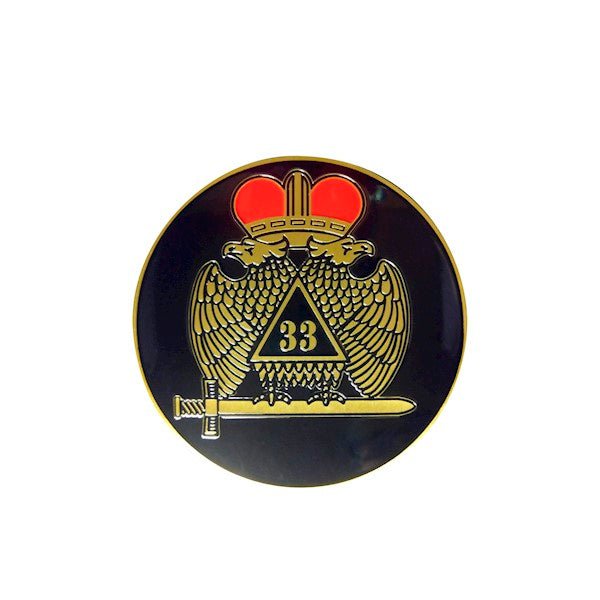
Exploring the Intermediate Degrees of the Scottish Rite: 4th to 17th Degrees
Share
In the Scottish Rite, intermediate degrees between the 4th and 17th are part of the journey from the foundational Blue Lodge degrees toward the advanced philosophical lessons found in the higher degrees. These intermediate degrees are often organized by groups and cover themes of morality, justice, enlightenment, and the exploration of ancient traditions. Here is a brief overview of each:
4° – 14°: Lodge of Perfection
The Lodge of Perfection encompasses the 4th through 14th degrees and primarily emphasizes moral teachings, introspection, and self-improvement.
5° Perfect Master - Encourages reverence for the dead, integrity, and self-reflection.
6° Intimate Secretary - Explores the importance of loyalty and vigilance.
7° Provost and Judge - Focuses on justice, impartiality, and the duties of judgment.
8° Intendant of the Building - Teaches balance between justice and mercy.
9° Elu of the Nine - Deals with the theme of retribution for wrongdoing.
10° Elu of the Fifteen - Centers on loyalty and reparation for past wrongs.
11° Elu of the Twelve - Highlights the importance of charity and understanding.
12° Master Architect - Emphasizes the significance of self-knowledge.
13° Royal Arch of Solomon - Relates to the legend of Enoch and hidden mysteries.
14° Perfect Elu - Deals with themes of perfection and completion in Masonic studies.
15° – 16°: Council of Princes of Jerusalem
The Council of Princes of Jerusalem focuses on the trials and tribulations of returning exiles and explores the ideas of freedom and leadership.
15° Knight of the East, Sword, or Eagle - Teaches the importance of fidelity to principles.
16° Prince of Jerusalem - Highlights themes of truth, integrity, and self-sacrifice.
17°: Knight of the East and West
The 17th degree, sometimes considered transitional, is known as the Knight of the East and West. It combines Christian and Masonic symbolism and explores the mystical and esoteric aspects of Masonic teachings, bridging the themes of morality with deeper philosophical inquiries.
These intermediate degrees (4th to 17th) serve as essential steps, each building upon lessons that guide the candidate toward higher understanding, moral character, and a philosophical foundation essential for progressing through the Scottish Rite.
